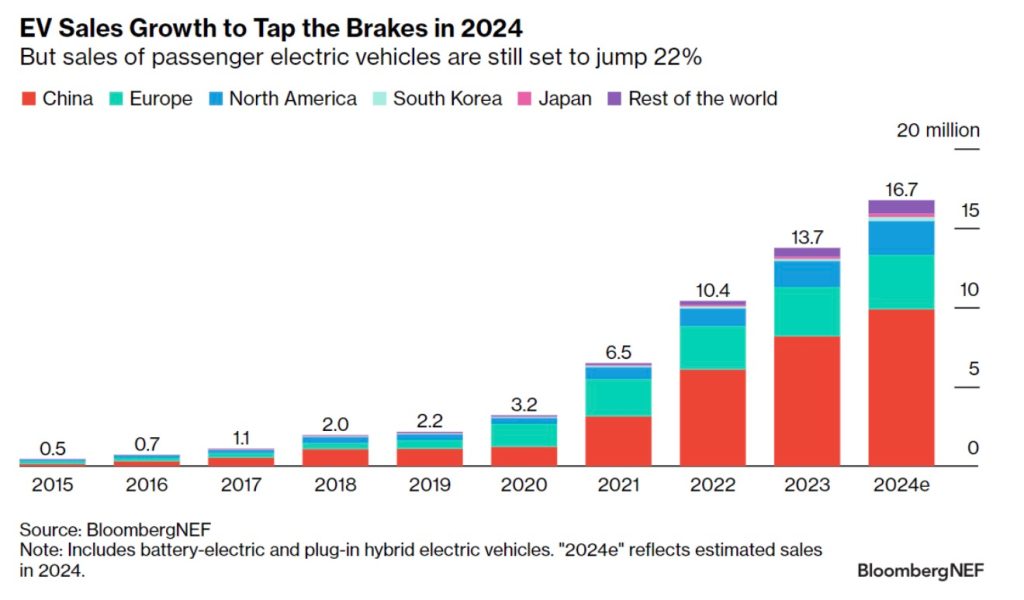electrek.coEVs are taking over the rest of the world much faster than the US
Fred Lambert3-3 minutesElectric vehicles are taking over the rest of the world much faster than the United States.
The faster we adopt EVs, the more benefits we get from them.
According to a new report from Bloomberg NEF claims that with 4.4 million units sold globally in the fourth quarter, there were a total of 13.7 million electric vehicles sold around the world in 2023.
It represented 18% of total passenger vehicle sales in the world last year.
As you can see from the chart below, China is still very much leading in adoption, and North America is still only a small market for EVs:
In the US, in particular, about 1.3 million EVs were added to American roads last year – for a roughly 9% penetration rate. That’s about half the global rate.
However, it’s significantly up from the previous year, which came just short of 7%.
BNEF now predicts over 16 million EVs to be deployed globally this year. While there are a lot of headlines about “EVs slowing down”, it’s the growth rate slowing down. The growth is still very much there, and the global penetration rate in the auto industry is set to surpass 20% this year.
Electrek’s Take
The US is behind in EV adoption. There’s no way around it. We have Tesla, but we simply don’t have some of the EV models that are making a difference in China and Europe.
That’s mainly due to protectionist laws in place.
Those laws resulted in significant foreign investments to build EVs in the US, which is good, but they have yet to result in higher volumes as many of those projects are in various stages of development.
The sooner we move to all-electric vehicles combined with clean electricity, the sooner we get the benefits from them. I know that the potential reduced impact of climate change is harder to grasp or even believe for some people, but the benefits of air pollution reduction should be clearer.
As of 2019, air pollution was estimated to cost the US approximately 5% of its annual GDP, according to the Center for Research on Energy and Clean Air.
When you reduce air pollution, you have a beneficial cascading effect that frees up a lot of the healthcare system.
I understand that the auto industry is one of the last bastions of manufacturing in the country, and it’s important to keep it – hence the protectionist initiatives, but I think it’s important to balance that with the incredible benefits of cleaner air.
- Forums
- Political Debate
- Accelerate the World's Transition to Sustainable Energy - to fight Anthropogenic Climate Change
electrek.coEVs are taking over the rest of the world much faster...
- There are more pages in this discussion • 786 more messages in this thread...
You’re viewing a single post only. To view the entire thread just sign in or Join Now (FREE)






